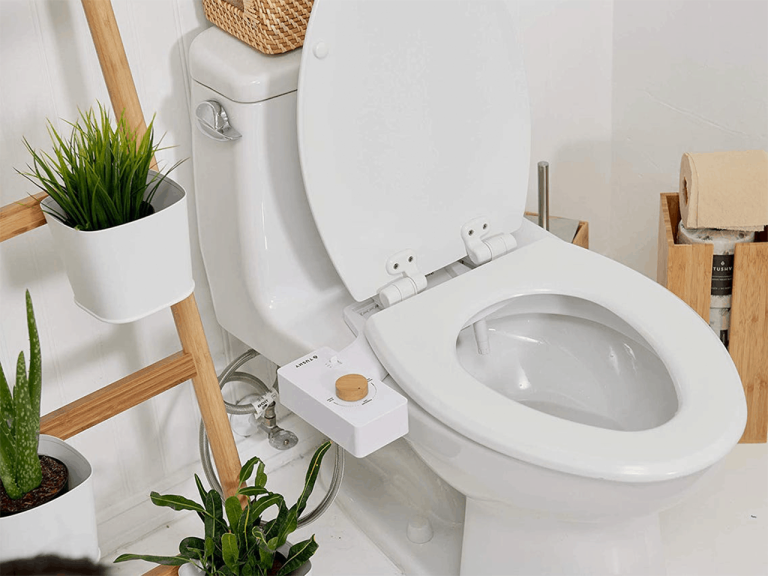Bidet is a hygienic way of cleaning yourself after using the bathroom. Bidets have faucets and running water meant to touch your body. Therefore, bidets can be used as eco-friendly toilet paper alternatives. Here is why you are eco-friendly when utilizing a bidet.
1. Are Bidets More Environmentally Friendly?
To put it into perspective, we need to look into an alternative to the bidet, toilet paper. On average, an American can be expected to flush 141 rolls down the toilet yearly. Thus, the U.S. is the world’s highest consumer of toilet paper.
Toilet paper is a product made from trees. From the statistics above, each American is expected to use 141 rolls, equivalent to a whopping 28 lbs. That translates to a massive number of trees to satisfy the requirements of the whole inhabitants each year.
However, when using a bidet, you may not require toilet paper at all. Nevertheless, you may want to use toilet paper to dry yourself. Even then, the number of toilet paper you can use is significantly reduced. Better still, you can use a small towel since the bidet would have done the cleaning.
Consequently, bidets are far more eco-friendly. They can reduce the need for toilet paper, thus saving trees from being cut. More importantly, bidets use less water than required to make a toilet paper roll.
2. Bidet Manufacturing
We all know the controversy that surrounds the manufacture of toilet paper. Toilet paper involves the use of trees. Thus it’s not eco-friendly. Bidet manufacturing does not require cutting trees down. Besides, a bidet can last quite a long time.
Nonetheless, the majority of the bidets are plastic made with metal parts. Plastic is not environmentally friendly. But then, a bidet is not a product meant for single use. In addition, there is an option for a stainless-steel bidet hose. Ultimately, the bidet comes out top on being more eco-friendly.
3. Higher Hygiene and Cleanliness Levels
A bidet uses water to clean after using the bathroom rather than wiping using toilet paper. A bidet sprays your nether parts with a gentle stream of water. So, it is a better way of maintaining your bathroom sanitation. It also leaves you feeling cleaner and fresher.
With water, a bidet is more effective in clearing fecal matter. You will need more than just toilet paper to leave you as clean. Moreover, cleaning with a bidet ensures nothing is left on your skin. Thus, it can prevent you from getting infections and other health problems.
4. Bidet Saves on Water Bills
Long term, a bidet will save a lot of water. The bidet itself uses less water for cleaning after using the bathroom. Besides, a bidet can reduce incidences of plumbing line clogging. So, you won’t use gallons of water trying to unclog. Hence, it can save you on water bills.
Yet, you can cut as much as 75% of toilet paper use with a bidet. You will save money that would have gone into buying toilet paper. As a result, with a bidet, you can save trees and ensure water is used efficiently.
You can buy bidet converter kits or bidet toilet seat add-ons which are cheaper than a full bidet. A bidet is simple to install, low-cost and effective. Therefore, you can transform your bathroom into an eco-friendly space for less.
5. Disposal
Bidets can greatly reduce solid waste that ends up in sewer treatment. Although conventional toilet paper is developed to disintegrate effortlessly in water, it adds to solid waste.
The watery sludge is treated and used, but the solid waste is either:
- Put into an incinerator, but the ash left will have to be disposed of,
- Disposed of in a landfill,
- Sold in the form of biosolids used in agriculture as fertilizer yet could contain toxic elements,
- A bidet can cut toilet paper use, thus reducing the volume of solid waste.
Concluding Remarks
There are different types of bidets, but all of them are cleaned using a targeted stream of water. They use less water and eliminate or reduce the need to use toilet paper. Hence, bidets are more eco-friendly to use.

